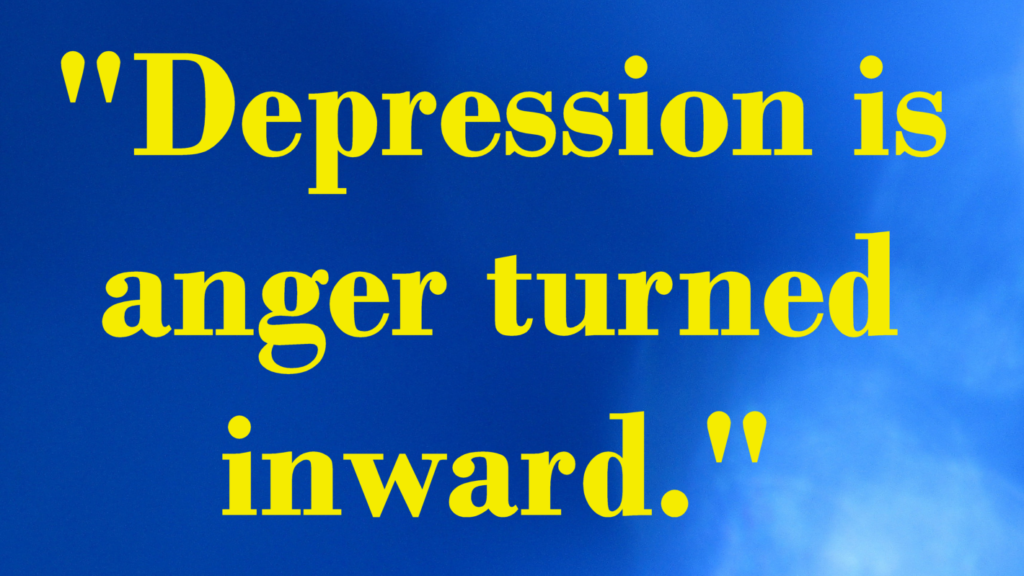
Depression and Anger Turned Inward
Depression and Anger Turned Inward, I’m sure you’ve heard the saying, “Inward anger is depression. So, did you know there’s a connection between the two?” In fact, research shows that irritability and anger result from Maladaptive anger is the result of the brain’s inability to control impulses from the nervous system. Fortunately, there are steps you can take to reduce anxiety and anger that causes depression.
Irritability is a hallmark of depression. depression The hallmark of major depressive disorder in adults. However, this is not part of the current diagnostic criteria for MDD. Irritability can be present in the cluster of symptoms of episodic or chronic depression. The presence of irritability may be a marker for the next best treatment option in patients with treatment-resistant depression.
A recent study examined changes in irritability during treatment with antidepressant drugs. The results showed that an early improvement in irritability was associated with a greater likelihood of recovery. This finding is a breakthrough because previous studies did not consider irritability as a predictor of disease remission.
In addition to improvements in dysphoria, there was also an improvement in the severity of depressive symptoms during treatment. Models combining these two predictors were tested. The model is well-calibrated with a probability of 0.6. Assessing irritability using a five-point self-report scale in a measurement-based attention paradigm. Baseline irritability scores were included in mixed model analyses to assess changes in irritability from baseline to week.
The individual-level calculator was developed using logistic regression analysis and the dilution calculator was developed using logistic regression analysis. These models were tested on participants with the full data set.
Although irritability has been identified as a hallmark of depression, it has not been studied outside of childhood psychiatric disorders. This study is the first to estimate the prevalence of a chronic versus non-irritable gastrointestinal disorder in a general population sample.
The results showed that the frequency of irritable and non-irritable MDD was strongly associated with income and gender. Neurotic patients reported significantly higher lifetime comorbidities and a higher rate of recurrent depressive episodes than non-anxious patients. In the year following the interview, they responded more often to professional treatment for depression. They also reported higher rates of fatigue and pathological thoughts about death.
Although these results indicate that irritability is a promising predictor of remission, further research is needed to confirm the validity of this approach. Future studies will also examine the effectiveness of other measures of depression.
The authors of this study believe that changes in irritability should be taken into account when making clinical decisions. However, dysphoria does not fully reflect the severity of depressive symptoms.
Serotonin Dysfunction May Cause Maladaptive Anger
There are many possible causes for maladaptive or impulsive anger. However, there are many medications that can help combat or at least reduce the symptoms of this feeling. This article will review some of the most recent research on this topic, including in a small group of healthy volunteers.
studies examining subcortical dopamine and serotonin turnover while taking subchronic antipsychotics yielded impressive results. Although the participants were young, the results may also apply to older adults. The most interesting part of the experiment was to reveal the complex serotonergic circuits in the prefrontal cortex. In addition to its role in emotion regulation, this circuit is also essential for processing reward and arousal.
Another commendable trial involved a novel design to study the effects of subchronic antipsychotics in healthy volunteers. This research was funded by the National Institutes of Health. The researchers assessed the effect of the drugs on behavioral functioning and psychological factors, among other things. Their findings appear in an upcoming issue of the journal Psychological Science. Specifically, the researchers examined the effects of acute and chronic doses of the drug on dopamine levels, which were measured using a battery of neuropsychological tests. In addition, the study used a control group that was treated with serotonin. In most cases, the results were positive.

Self-compassion reduces depression-related anger
Over the past few years, we’ve learned that self-compassion is associated with many positive outcomes. For example, it has been shown to improve mental health and well-being. Among other things, it is about the ability to regulate emotions. It may even have the ability to untangle irrational beliefs and depression.
One of the most important benefits of self-compassion is that it can help people overcome their fear of failure. They are less likely to give up and more likely to try again.|
Another important benefit of self-compassion is that it reduces negative affect. In fact, a recent study found that students in the self-compassion group reported lower levels of negative affect than their peers. However, the study also showed that students in the control group were not motivated to the same degree.
Another piece of information to consider is that higher levels of self-compassion are associated with greater awareness. The study found that higher SC scores correlated with higher levels of proxy activity. This can be a good sign for those looking to improve their mental health.
A study by Neff and colleagues found that self-compassion is a powerful tool for combating anxiety. Using gestalt exercises with two chairs, it increased participants’ self-compassion. Interestingly, they also found that increasing self-compassion was a great way to reduce depression. To better understand how this self-compassion works, Neff and his colleagues measured its effectiveness in real-life situations. Participants were asked to complete several self-assessment tools.
They include the aforementioned Social Connectedness Scale, the aforementioned Mindful Attention and Awareness Scale (MAAS), the aforementioned Self-Empathy Scale, and the aforementioned SelfMeasurable Events (SMOO). Although there are many studies showing the positive effects of self-compassion on depression and anxiety, there is little evidence that it is a cure-all. However, for those who suffer from depression, it is best to remember that depression is not their fault.
FAQs….
Which theory conceptualizes depression as anger turned inward?
How do you release repressed anger?
- Understand Where Your Anger Is Coming From. ...
- Track Anger in Your Body. ...
- Start Journaling. ...
- Interrupt Angry Thoughts. ...
- Find a Physical Outlet for Your Anger. ...
- Practice Meditation. ...
- Use I-Statements. ...
- Feel Your Feelings.











